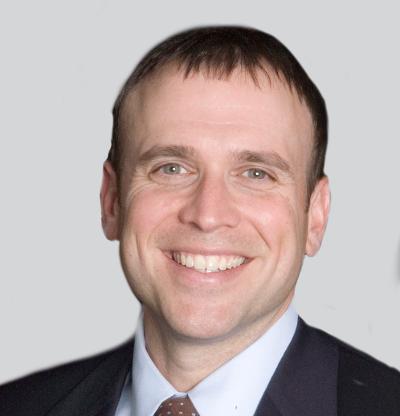
Sandy Springs native Dr. Scott Leibowitz, a sleep specialist with Laureate Medical Group, said his practice of diagnosing and treating sleeping disorders has been booming, and not only because there is a greater percentage of an aging population in Sandy Springs.

“As we age, there is a higher prevalence of sleep disorders and I have watched this community age,” said Leibowitz who has lived in Sandy Springs nearly all his life, other than when he went to college and then for medical training.
But the increase in number of people complaining about their sleeping issues cannot necessarily be blamed on age or the last three years of the stressful Covid pandemic, believes Leibowitz and other sleep specialists at the many clinics in Sandy Springs. Dr. Abu Matin at Sleep Disorders Center of Georgia suggests that the awareness of sleep disorders has skyrocketed since the 1980s partly because people are more educated about sleeping disorders and because primary care physicians are asking patients about their sleeping behavior.
“Physicians are screening for it more,” said Leibowitz, including cardiologists and neurologists as well as primary care physicians. “There’s an awareness of widespread consequences that include affects on cognitive thinking and the cardiovascular system.”
Matin points to consequences of sleep disorders such as heart disease, stroke and high blood pressure.
Sleep disorders, which encompass more than 50 types, will receive special recognition the week of March 12-18, during Sleep Awareness Week. During that week, the National Sleep Foundation will promote education and awareness of the disorder which impacts directly, according to Matin, 10 percent of the population. Indirectly, of course, family members – especially spouses – are also affected.
The National Sleep Foundation was founded in 1990 to improve health and well-being through sleep education and advocacy. The organization notes on its website that sleep science and insight are increasingly being incorporated into accessible health products and services.
Diagnosis of sleep disorders generally entails actual sleep monitoring either in sleep labs or with in-home machines. Children, said Matin, must be monitored within a lab. Children with sleep disorders often will be treated by having their tonsils removed, but with adults, the treatment is different. Since 80 percent of the patients he sees have sleep apnea, they can generally be treated with breathing machines, known as CPAP, which have been continually improved over the years.
A second option requires a dental device and a third option calls for surgery, but Matin said it’s not as effective. Treatment also entails lifestyle changes such as losing weight and cessation of smoking or drinking alcohol.
Although there have been significant changes in medication for sleep disorders, Leibowitz said there is not one single medicine that will work for everyone.
The best-known symptom of sleep apnea is loud snoring, followed by episodes in which the patient stops breathing during sleep. Both of these are generally reported by other people. Other symptoms include gasping for air during sleep, awakening with a dry mouth, morning headaches, difficulty staying asleep, known as insomnia, and excessive daytime sleepiness, known as hypersomnia.
Matin notes that sleep apnea is generally more apparent in males. “Females snore less and don’t complain of daytime tiredness, so it’s easier to miss,” he said. For both genders, age has an impact. An increase in weight occurs more often in males, but women experience sleep apnea more after menopause.
Sleep problems usually occur in clusters, said Leibowitz, but “sleep is different for everybody. People are told that it is due to bad choices, but you have to think of it as a biological process that is unique to your biological design.” For everyone, though, he stresses, sleep is not a luxury, but a necessity.
Matin said sleep disorders are known as a “slow killer,” because they involve a lack of oxygen. “Some people might brush off snoring. They think, so what? But it is a serious disease.”Partly due to the education surrounding sleep issues, many people have invested in gadgets that tell them how much they are sleeping and how deeply they are sleeping. “Sleep trackers,” said Leibowitz, “are more helpful to measure degrees of change after treatment. They are designed for sleepers, not for those with sleep disorders. I caution people not to focus on that.”